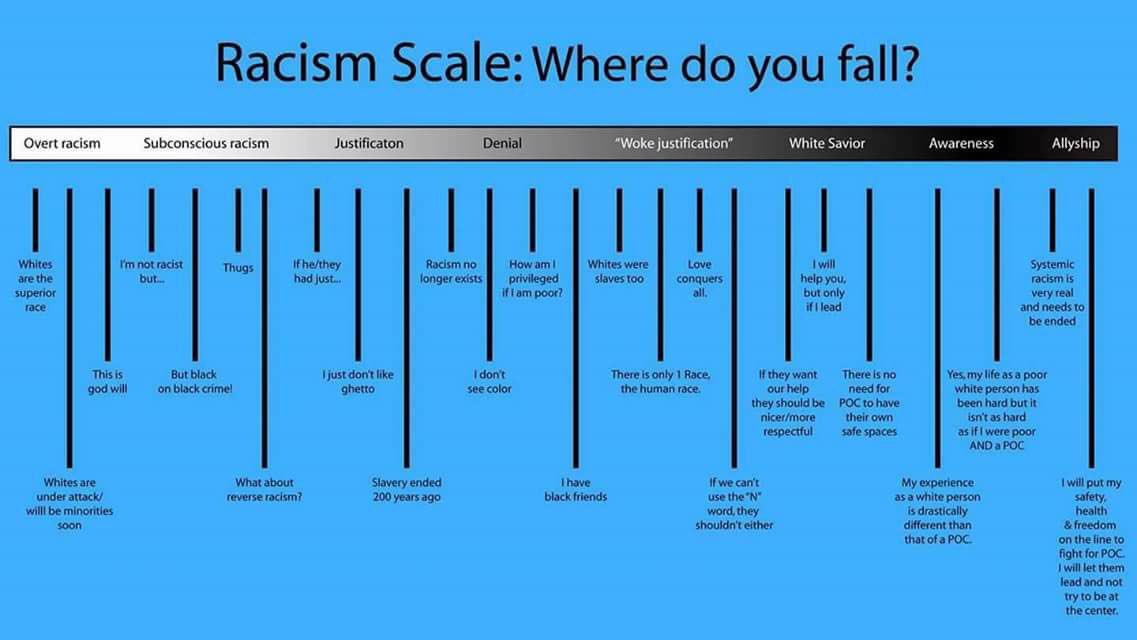“80 percent of life is just showing up.” This well-known quote, often attributed to actor and director Woody Allen, indicates the importance of presence in life. And it makes sense, after all, you can’t get ahead if you aren’t there to receive it. In times of crisis, a friend’s simple presence is often worth the most. A child or teenager in a school production or sporting event will scan the crowd for a familiar face to cheer them on. Showing up matters.
“Present your bodies as a living and holy sacrifice” Paul writes. It’s the ancient version of this quote, reminding believers of the importance of showing up for God. Here in Romans, Paul lays out that how we engage our physical selves is a reflection of our faith. He puts it in terms that believers in Rome would understand, referencing practices of sacrifice. But, instead of a specific animal brought to the temple, Paul calls it a “living sacrifice,” a phrase that plays on what is known with something new. For Paul, our presence is not some sacrifice that ends in death, but instead is a consecration or dedication to the will and work of God that is live-giving. It marks renewal and wholeness, and is even included in many of our communion prayers as a sign that we wish to be made new by God at Christ’s table. And so we present ourselves, freely and openly, trusting that when we show up, God does too.
But, as another clichéd phrase goes, “showing up is half the battle.” For Paul, there is more to embodied faith than just physical presence. It also involves an opening of the mind. This week, my yoga instructor began class as always by calling our attention to deepening our breath as we centered ourselves to begin our practice together. She indicated an essential part to yoga is the combined presence of body and mind, encouraging us to be both physically present and mentally present in the space. She explained that in doing so, we would be able to do more than if we just mimicked her poses with our own bodies. By thinking about what we were doing, we would be able to do more. She’s right, of course. It’s one thing to sit on a yoga mat or in a pew, for example, and another to make the mental effort to sit tall. Try it with a bit of mindfulness in the next few moments: elongate the spine, imagining space between the vertebrae, like a string is pulling you up from the top of the head, while your shoulder blades are being drawn down away from your ears. Can you feel the difference even with just a bit more awareness? The body and the mind are connected, and at their best work together as a team.
In order to be our most faithful selves, we need to wrap our minds around things in new ways, ways that push and challenge us to better examine ourselves, our communities, our nation and even our world. We have to do more than just show up; we have to think about it, too. It is easy to fall into the trap of just going through the motions without really engaging our minds. This is especially true when it comes to our worship. We like to be lulled and comforted. And sometimes that’s what we need – a sanctuary from all the chaos and conflict that is happening in our world, a haven from the shouting pundits and not-so-funny memes and arguments in the comment threads. But I don’t think that’s what Paul had in mind for the early church, certainly not in Romans. If anything, the Roman church had a very persuasive argument for the need for shelter and separation from the world. They were under attack, persecuted by the Empire, forced into hiding because of very real risks. But even then, perhaps especially when the world was at odds, Paul called them to reflect on the ways of the world so that they would not conform to the evils that surrounded them, but could be transformed by the renewing of their minds – something that happened in the context to true, authentic worship within the body of Christ.
A seminary friend posted a genuine question earlier this week, asking “how important is it to you for current events to be addressed specifically in worship?” The responses varied, but all seemed to point to the fact that our time together of worship should include wrestling with the issues of the world, not as partisan or policy debates, but rather in relationship to our understanding of what it means to be part of the kingdom of God. We must hear the words of Scripture not just as ancient texts, but as the Word of God here and now to us in our context, too. We have to trust that the church, particularly in our worship, can be a place where transformation can happen; in fact, we need to come expecting it. Otherwise, we will only experience a temporary escape without any real toolset for what we encounter outside of these walls, and are likely to fall into patterns of old ways and old thinking, conforming to the world as we blend in. Paul insists that God is calling us forward, into a new transformed way of being in which:
We must be ready to challenge those parts where the present age shouts, or perhaps whispers seductively, that it would be easier and better to do things that way, while the age to come, already begun in Jesus, insists that belonging to the new creation means that we must live this way instead[i].
We have to be a people who embody, body and mind, what it means to live with Jesus Christ as our Lord, not anyone or anything else. Worship can be a place where we find a balance point of human initiative and divine intervention as we grapple with the concerns of our day and seek to understand what the will of God is in the midst of it. When we are transformed, we are able to be a true witness to the work of Jesus Christ.
The beginning point of that witness starts with us. It starts with our honest and humble admission that we are prone to conforming to the world’s standards for life and that through our conforming, through our inaction, and through our silence, we have been complicit in the escalation of discord and disharmony within our society. This is a part of the renewing of minds that has to take place within us to live into our identity as the transformed body of Christ. As I have reflected on the role of racism in my own life over these past few weeks, I discovered a scale which was developed in July by psychologist Cristi Demnowicz[ii] as a way to illustrate and identify the racial bias we all experience on some level.
It resonated with me in a humbling way, reminding me that I can’t just talk about the issues of racism in our country as if I have not been a part of them. No, I have never donned a hood or openly discriminated against a person of color, but that doesn’t mean I have not been racist. As I scanned the chart, I identified with moments of awareness, in which I have noted that my experience as a white, heterosexual cis-woman has been largely privileged and different from what many who are not in these majority categories find. But as I looked at some of the other phrase descriptions, I had a lump in my throat as I realized how I have been guilty of saying, or at least thinking, things far more towards the side of racism than I would like to admit. And so, I confess, before you my brothers and sisters in Christ, that I have been and sometimes still am, racist. And I am praying for God to work through that and renew my mind and lead me more into modeling Christ’s love, just as ardently as I am praying for that to happen in the hearts and minds of those who are at every point on this spectrum. And I am extremely grateful to be able to do this hard work in the context of a faith community. Transformations, big and small, don’t happen alone.
The second part of today’s reading reminds us that God’s work isn’t just a solitary event of internal change. It is an act of community. As such, we are reminded to not get too big of a head, but instead consider what our transformed selves might offer. We have been transformed for a reason; to be a part of the body of Christ in the world. During the Civil Rights movement, Dr. Martin Luther King, Jr. had this to say about our work:
Human progress never rolls in on wheels of inevitability; it comes through the tireless efforts of men [sic] willing to be coworkers with God, and without this hard work, time itself becomes an ally of the forces of social stagnation. We must use time creatively in the knowledge that the time is always ripe to do right[iii].
Paul invites us to participate in that through the genuine giving of ourselves as a living sacrifice before God, opening ourselves in body and mind to the work God might do in us, with us, and through us. Our passage begins with Paul begging his listeners to action, using the words “I appeal to you.” The word in Greek, parakalo, is closely related to the word John’s gospel uses to describe the Holy Spirit, the Paraclete. This is not just some command. The language exudes invitation. Paul is encouraging his readers, and us, to respond to our faith by offering ourselves to be transformed by God and engaged in the work of God’s kingdom. Romans 12 is a call to action for the church in the present age. It starts by showing up. It continues by trying to wrap our minds around the issues of our world and the holiness of God’s will for us in it. It leads us into being the body of Christ. And it places us in the position to renew our commitments as followers of Jesus Christ.
Our church history is rich with such moments. In the 1980s, the Dutch Reformed Mission Church in South Africa put together a formal statement of faith, something we call a confession, that began with a letter which said, in part:
We are deeply conscious that moments of such seriousness can arise in the life of the Church that it may feel the need to confess its faith anew in light of a specific situation. We are aware that such an act of confession is not lightly undertaken, but ONLY (to be undertaken) if it is considered that the heart of the gospel is so threatened by it to be at stake. In our judgment, the present situation in our country…..calls for such a decision. Accordingly, we make this confession not as a contribution to a theological debate, nor as a new summary of our beliefs, but as a cry from the heart, as something we are obliged to do for the sake of the gospel in view of the times in which we stand…….Therefore, we speak pleadingly rather than accusingly. We plead for reconciliation, and call for a process of soul searching together, a joint wrestling with the issues, and a readiness to repent in the name of our Lord Jesus Christ[iv].”
These words introduced Belhar Confession, written in response to the horrors of Apartheid that also presents ringing truths for us today. When sin threatens to corrupt the fabric of our society; when evil creates division among God’s children, constructs systems, and condones hostile actions and attitudes which demean and degrade the worth of any person or group and incites violence and destruction, the Christian community must respond by reclaiming what it is that we believe and who we are as followers of Jesus Christ. It can only happen if we are presenting ourselves to be transformed by God and working to find our place in God’s community.
I appeal to you, brothers and sisters, to take part in this joyous thing God is offering. Hear Paul’s words in verses 1 and 2 as an encouragement and a charge to you in these moments, made fresh to our modern ears by Eugene Peterson’s adaptation in The Message:
So here’s what I want you to do, God helping you: Take your everyday, ordinary life—your sleeping, eating, going-to-work, and walking-around life—and place it before God as an offering. Embracing what God does for you is the best thing you can do for him. Don’t become so well-adjusted to your culture that you fit into it without even thinking. Instead, fix your attention on God. You’ll be changed from the inside out. Readily recognize what he wants from you, and quickly respond to it. Unlike the culture around you, always dragging you down to its level of immaturity, God brings the best out of you, develops well-formed maturity in you[v].
May we be transformed in this way. Amen.
~Rev. Elizabeth Lovell Milford
August 27, 2017
————————————————————————————————————–
[i] N.T. Wright
[ii] http://racismscale.weebly.com/
[iii] Martin Luther King, Jr., Why We Can’t Wait (New York: Signet Classics, 2000), as quoted by Kirk Byron Jones in his essay “Homiletical Perspective: Romans 12:1-8,” Feasting on the Word: Year A, Volume 3, David L. Bartlett and Barbara Brown Taylor, editors, (Louisville, KY: Westminster John Knox Press, 2011).
[iv] The Belhar Confession, https://www.presbyterianmission.org/resource/belhar-confession/
[v] Eugene Peterson,“Romans 12:1-2,” The Message












